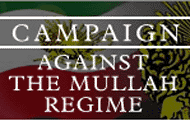Beim Middle Estern Media Research Institute wird diese Entwicklung analysiert und im Wesentlichen auf die Veröffentlichung des NIE-Berichts zurückgeführt. Die Analyse von Memri macht ein weiteres Mal deutlich, wie sehr die Vereinigten Staaten sich mit diesem Geheimdienstpapier ins eigene Bein geschossen haben:
The NIE report, in addition to being perceived as a significant Iranian victory, removed the threat of a U.S. military attack on Iran, giving rise to concerns in the Gulf that the report could herald a U.S.-Iranian understanding which would compromise the safety of the Gulf states. [...]Das NIE-Papier hat den Golfstaaten die Hoffnung genommen, die USA könnten sie vor den iranischen Ambitionen schützen. Damit bleibt ihnen nichts anderes übrig, als sich mit den Mullahs in Teheran zu arrangieren, denn abgesehen von den Vereinigten Staaten, sind sie die stärkste Macht in der Region. Damit hat es Ahmadinedjad nicht nur sehr viel leichter, die iranische Bevölkerung zu unterdrücken, sondern auch einige Hindernisse, die der Vorbereitung des Massenmordes an den Juden in Israel im Weg stehen, wurden aus dem Weg geräumt.
The deputy editor of the Bahraini daily Akhbar Al-Khaleej, Al-Sayyed Zahra, asked why the Gulf states had changed their attitude towards Iran when the latter had not changed its policies at all. He presented an analysis which suggested that the NIE report was one of the reasons for this development:
"What new development caused the change in Arab-Iranian relations? On what basis has it occurred?... As usual, the Arab governments are giving us, the Arab citizens, no explanations... Therefore, we have no option but to review the assessments of the various analysts and of others who are following this matter...
"After the publication of the report by the NIE report... the Arab states assessed that the time was ripe for greater rapprochement with Iran and for greater openness [towards it]... The Arab governments assessed that the publication of the [NIE] report might indicate a possible change in U.S. policy towards Iran, and this naturally led to greater openness towards this country on the part of the Arabs."
Zahra expressed a concern that future U.S.-Iran dialogue may come at the expense of the Gulf states' interests: "We now see America wooing Iran and invoking the option of diplomatic dialogue [with it], and perhaps even more than that - an agreement that would resolve the crisis. What exactly is behind these [new] positions and moves? And what are the Arabs' interests in this [situation]?... Is it conceivable that, within a couple of days, Iran's position and role in Iraq has changed so radically? Is it conceivable that, within a couple of days, Iran has gone from being one of [the forces] that arm and support the militias [in Iraq] to being [a force] that restrains [these militias] and helps to stabilize the region? Of course it is inconceivable."
Die letzte Hoffnung gegen die iranische Bombe ist der jüdische Staat selber, der es sich - anders als die USA - nicht leisten kann, den Mullahs entgegenzukommen. Damit dürfte auch entschieden sein, dass die militärische Variante als einzige Lösung bleibt. Schließlich gibt es niemanden mehr, der dem Iran nun ernsthaft mit Sanktionen drohen könnte.






No comments:
Post a Comment